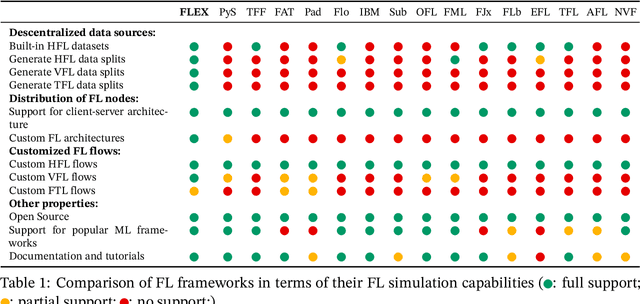Ignacio Aguilera-Martos
DenoGrad: Deep Gradient Denoising Framework for Enhancing the Performance of Interpretable AI Models
Nov 13, 2025Abstract:The performance of Machine Learning (ML) models, particularly those operating within the Interpretable Artificial Intelligence (Interpretable AI) framework, is significantly affected by the presence of noise in both training and production data. Denoising has therefore become a critical preprocessing step, typically categorized into instance removal and instance correction techniques. However, existing correction approaches often degrade performance or oversimplify the problem by altering the original data distribution. This leads to unrealistic scenarios and biased models, which is particularly problematic in contexts where interpretable AI models are employed, as their interpretability depends on the fidelity of the underlying data patterns. In this paper, we argue that defining noise independently of the solution may be ineffective, as its nature can vary significantly across tasks and datasets. Using a task-specific high quality solution as a reference can provide a more precise and adaptable noise definition. To this end, we propose DenoGrad, a novel Gradient-based instance Denoiser framework that leverages gradients from an accurate Deep Learning (DL) model trained on the target data -- regardless of the specific task -- to detect and adjust noisy samples. Unlike conventional approaches, DenoGrad dynamically corrects noisy instances, preserving problem's data distribution, and improving AI models robustness. DenoGrad is validated on both tabular and time series datasets under various noise settings against the state-of-the-art. DenoGrad outperforms existing denoising strategies, enhancing the performance of interpretable IA models while standing out as the only high quality approach that preserves the original data distribution.
Local Attention Mechanism: Boosting the Transformer Architecture for Long-Sequence Time Series Forecasting
Oct 04, 2024



Abstract:Transformers have become the leading choice in natural language processing over other deep learning architectures. This trend has also permeated the field of time series analysis, especially for long-horizon forecasting, showcasing promising results both in performance and running time. In this paper, we introduce Local Attention Mechanism (LAM), an efficient attention mechanism tailored for time series analysis. This mechanism exploits the continuity properties of time series to reduce the number of attention scores computed. We present an algorithm for implementing LAM in tensor algebra that runs in time and memory O(nlogn), significantly improving upon the O(n^2) time and memory complexity of traditional attention mechanisms. We also note the lack of proper datasets to evaluate long-horizon forecast models. Thus, we propose a novel set of datasets to improve the evaluation of models addressing long-horizon forecasting challenges. Our experimental analysis demonstrates that the vanilla transformer architecture magnified with LAM surpasses state-of-the-art models, including the vanilla attention mechanism. These results confirm the effectiveness of our approach and highlight a range of future challenges in long-sequence time series forecasting.
FLEX: FLEXible Federated Learning Framework
Apr 09, 2024



Abstract:In the realm of Artificial Intelligence (AI), the need for privacy and security in data processing has become paramount. As AI applications continue to expand, the collection and handling of sensitive data raise concerns about individual privacy protection. Federated Learning (FL) emerges as a promising solution to address these challenges by enabling decentralized model training on local devices, thus preserving data privacy. This paper introduces FLEX: a FLEXible Federated Learning Framework designed to provide maximum flexibility in FL research experiments. By offering customizable features for data distribution, privacy parameters, and communication strategies, FLEX empowers researchers to innovate and develop novel FL techniques. The framework also includes libraries for specific FL implementations including: (1) anomalies, (2) blockchain, (3) adversarial attacks and defences, (4) natural language processing and (5) decision trees, enhancing its versatility and applicability in various domains. Overall, FLEX represents a significant advancement in FL research, facilitating the development of robust and efficient FL applications.
TSFEDL: A Python Library for Time Series Spatio-Temporal Feature Extraction and Prediction using Deep Learning
Jun 08, 2022



Abstract:The combination of convolutional and recurrent neural networks is a promising framework that allows the extraction of high-quality spatio-temporal features together with its temporal dependencies, which is key for time series prediction problems such as forecasting, classification or anomaly detection, amongst others. In this paper, the TSFEDL library is introduced. It compiles 20 state-of-the-art methods for both time series feature extraction and prediction, employing convolutional and recurrent deep neural networks for its use in several data mining tasks. The library is built upon a set of Tensorflow+Keras and PyTorch modules under the AGPLv3 license. The performance validation of the architectures included in this proposal confirms the usefulness of this Python package.
 Add to Chrome
Add to Chrome Add to Firefox
Add to Firefox Add to Edge
Add to Edge